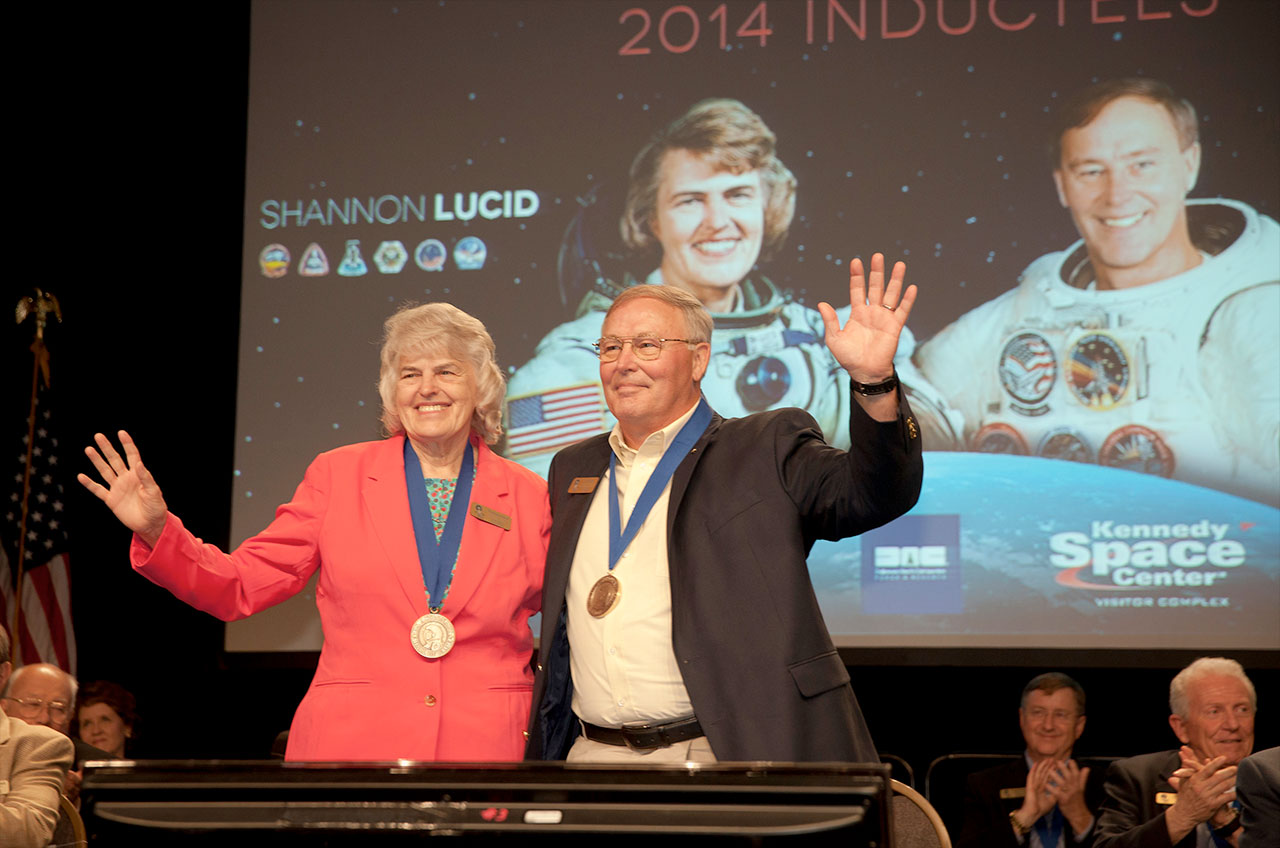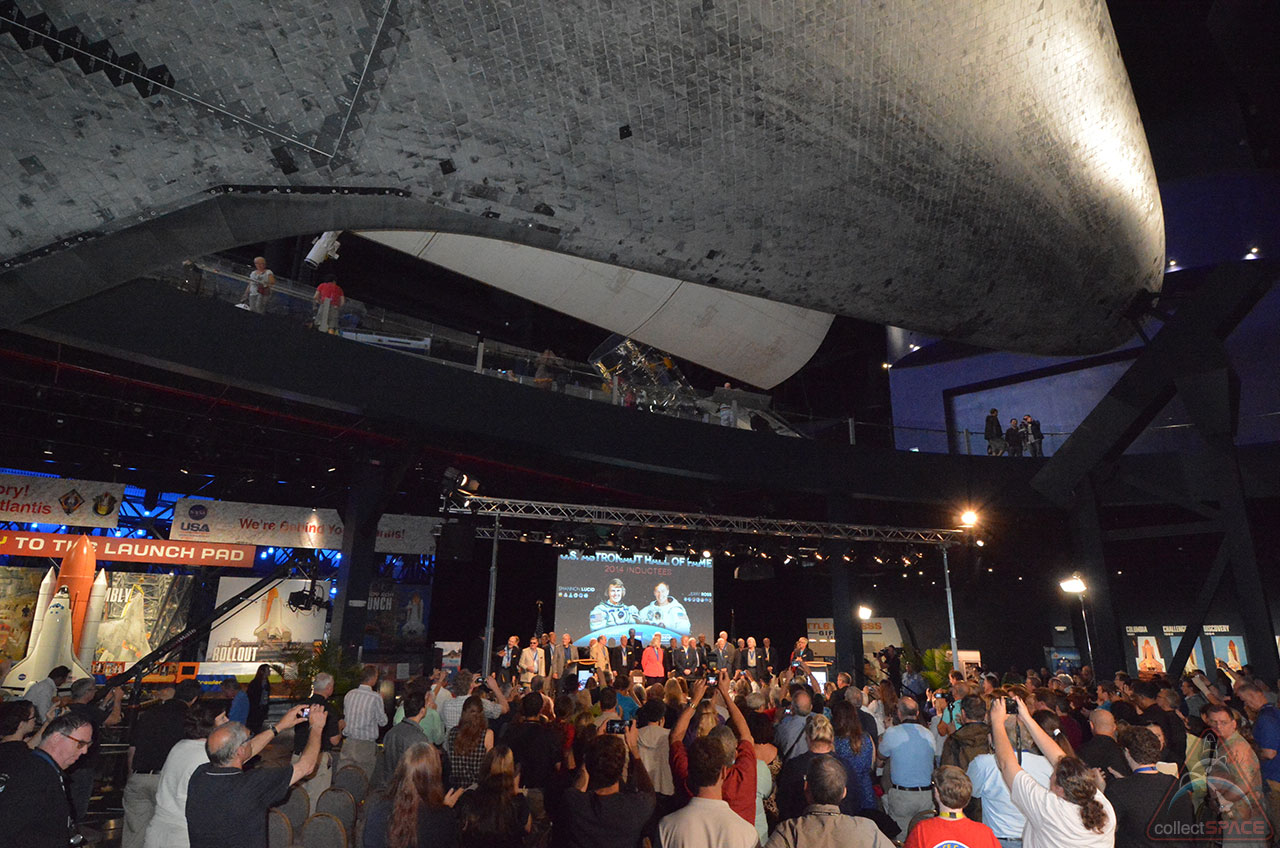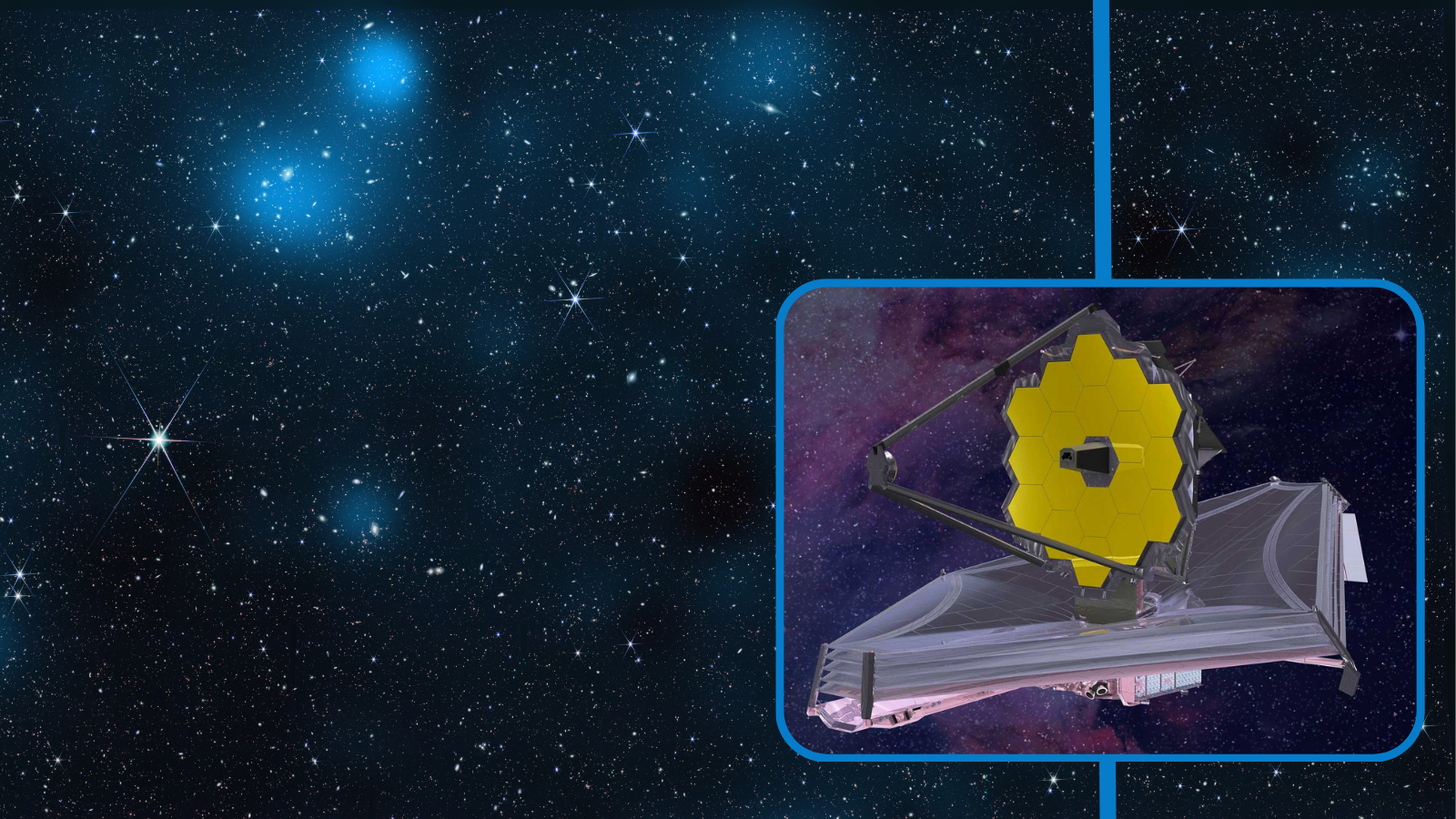Astronaut Hall of Fame Inducts Two Record-Setting Space Shuttle Fliers

Breaking space news, the latest updates on rocket launches, skywatching events and more!
You are now subscribed
Your newsletter sign-up was successful
Want to add more newsletters?

Delivered daily
Daily Newsletter
Breaking space news, the latest updates on rocket launches, skywatching events and more!

Once a month
Watch This Space
Sign up to our monthly entertainment newsletter to keep up with all our coverage of the latest sci-fi and space movies, tv shows, games and books.

Once a week
Night Sky This Week
Discover this week's must-see night sky events, moon phases, and stunning astrophotos. Sign up for our skywatching newsletter and explore the universe with us!

Twice a month
Strange New Words
Space.com's Sci-Fi Reader's Club. Read a sci-fi short story every month and join a virtual community of fellow science fiction fans!
CAPE CANAVERAL, Fla. — The U.S. Astronaut Hall of Fame added two new members to its ranks Saturday (May 3), during an induction ceremony that was the first to be held under the elevated display of NASA's retired space shuttle Atlantis.
It was only a coincidence that the inductees had both set records while flying aboard that particular orbiter.
Shannon Lucid and Jerry Ross were received into the U.S. Astronaut Hall of Fameby a group of more than 20 of their fellow honorees, including veterans of NASA's Apollo and shuttle programs. The ceremony was held at the Kennedy Space Center Visitor Complex in Florida, inside the Space Shuttle Atlantis exhibit that opened last June.
Lucid and Ross flew eight of their combined 12 shuttle flights aboard Atlantis.
It was space shuttle Atlantis that brought Lucid to and from the Russian space station Mir in 1996. Her 188 days living onboard the outpost set records for the longest duration in space by an American and by a woman at the time.
"The last time I saw Atlantis was here at Kennedy Space Center when we landed and I came home from Mir," Lucid said. "So this is sort of like a homecoming."
Ross was aboard Atlantis in 2002 when he launched for a seventh time, setting the record for the most spaceflights. [7 Space Shuttle Astronauts You Should Know]
Breaking space news, the latest updates on rocket launches, skywatching events and more!
"Having flown into space seven times— and five of those having been on the space shuttle Atlantis — it's obviously my favorite space shuttle," Ross told collectSPACE. "So to be inducted with the space shuttle Atlantis right next to me is like having your cake, and ice cream, and cherries, and everything else."
Lucid and Ross joined NASA's astronaut corps in January 1978 and May 1980, respectively. Both launched into orbit for the first time in 1985 and retired from NASA in 2012.
In addition to her record-setting stay on Mir, Lucid made history as being chosen among the first six women NASA selected to be astronauts. A veteran of five missions, she logged more than 223 days in space.
Lucid's shuttle flights deployed communication satellites, launched the Galileo planetary probe to Jupiter and carried out medical experiments. In addition to Atlantis, she flew on Columbia and Discovery. As only the second American to live on the Soviet-era Mir, Lucid's long-duration mission helped paved the way for the International Space Station.
"My favorite was the long-duration flight, because frankly, before I flew on Mir, I thought that I really knew a lot about living and working in space," Lucid said. "But when I lived on Mir for six months ... I learned so much more."
Ross logged nearly 1400 hours in orbit, including 58 hours during nine spacewalks. His seven spaceflights still stand as a record, tied by only one other astronaut (2012 Hall of Fame inductee Franklin Chang Diaz), and his spacewalks rank as the second most among U.S. astronauts and third longest among spacewalkers worldwide.
Flying on Columbia, Endeavour and Atlantis, Ross helped deploy communication satellites and the Compton Gamma Ray Observatory, flew onboard a classified mission for the Department of Defense, installed a docking module on Mir and helped build the International Space Station, including serving on its first assembly mission.
Lucid and Ross were selected for the U.S. Astronaut Hall of Fame by a committee comprised of astronauts, former NASA officials, flight directors, historians, and journalists. The process was overseen by the Astronaut Scholarship Foundation, the nonprofit organization that established the hall in 1990.
To be eligible for induction in 2014, astronauts must have made their first spaceflight in 1996 or earlier, been a U.S. citizen and served as a NASA-trained commander, pilot or mission specialist who orbited the earth at least once.
Although the first to be inducted under Atlantis, Lucid and Ross are the 13th group of space shuttle astronauts to be named to the Astronaut Hall of Fame. In total, 87 Mercury, Gemini, Apollo, Skylab and shuttle veterans are enshrined in the hall.
"I grew up during the space race, and knowing it was the original Mercury astronauts that founded this organization and I've been enshrined into the same hall as they are, is something beyond my wildest dreams," Ross said.
Click through to collectSPACE.com to watch a video of the 2014 U.S. Astronaut Hall of Fame induction ceremony honoring Shannon Lucid and Jerry Ross.
Follow collectSPACE.com on Facebook and on Twitter at @collectSPACE. Copyright 2014 collectSPACE.com. All rights reserved.

Robert Pearlman is a space historian, journalist and the founder and editor of collectSPACE.com, a daily news publication and community devoted to space history with a particular focus on how and where space exploration intersects with pop culture. Pearlman is also a contributing writer for Space.com and co-author of "Space Stations: The Art, Science, and Reality of Working in Space” published by Smithsonian Books in 2018.
In 2009, he was inducted into the U.S. Space Camp Hall of Fame in Huntsville, Alabama. In 2021, he was honored by the American Astronautical Society with the Ordway Award for Sustained Excellence in Spaceflight History. In 2023, the National Space Club Florida Committee recognized Pearlman with the Kolcum News and Communications Award for excellence in telling the space story along the Space Coast and throughout the world.


